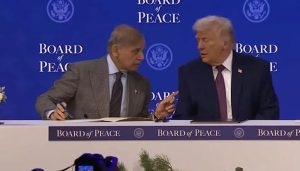LAHORE – High taxes on tobacco products can be a game-changer in Pakistan’s fight against tobacco consumption. Not only do they yield significant health benefits by discouraging tobacco use, but they also have positive economic ramifications. By implementing robust taxation policies, Pakistan can effectively curb tobacco consumption and pave the way for a healthier nation.
Health experts at a pre-budget seminar said that raising taxes on tobacco products has a direct correlation with reduced consumption. Studies have consistently shown that increased prices discourage people, especially youth and low-income individuals, from initiating or continuing tobacco use. By making cigarettes and other tobacco products less affordable, high taxes act as a strong disincentive, leading to a decline in tobacco consumption. This reduction in usage translates to improved public health outcomes, including a decrease in smoking-related diseases and premature deaths.
Speakers said that apart from the health benefits, high taxes on tobacco have positive economic implications for the country. The economic burden of tobacco-related healthcare costs lost productivity, and premature deaths weigh heavily on Pakistan’s economy. By curbing tobacco consumption through high taxes, the government can alleviate this burden, allowing resources to be redirected towards essential public services such as healthcare and education. Additionally, the revenue generated from increased taxes can be utilized for tobacco control programs, public awareness campaigns, and support for individuals trying to quit smoking.
According to them, high taxes on tobacco products serve as a preventative measure, particularly among young individuals who are more price-sensitive. By increasing the cost of tobacco, it becomes less accessible and less appealing to potential new smokers. This preventive approach helps to curb the initiation of smoking, ultimately reducing the number of individuals addicted to tobacco in the long run. Additionally, high taxes act as a deterrent for current smokers, motivating them to quit or reduce their tobacco consumption due to the increased financial burden.
Pakistan is a signatory to the World Health Organization’s Framework Convention on Tobacco Control (FCTC). This international treaty emphasizes the implementation of evidence-based tobacco control measures, including higher taxes on tobacco products. By fulfilling its commitments under the FCTC, Pakistan can showcase its dedication to promoting public health and align itself with global efforts to combat tobacco use.
Pakistan can create a healthier and more prosperous future for its citizens, by reducing the burden of tobacco-related healthcare costs and redirecting resources towards vital public services. It is crucial for policymakers to recognize the immense potential of high taxes as an effective tool in curbing tobacco consumption and take decisive action to implement robust taxation policies. Together, let us pave the way for a tobacco-free Pakistan.













